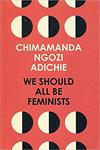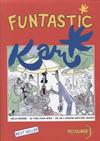
The Constant Gardener
Registered by Tali2 on 5/13/2005
1 journaler for this copy...
Amazon says:
There were those who feared that the end of the Cold War would deal a fatal blow to the creativity of many first-rate thriller writers who specialised in this territory. In the case of John le Carré, this would have meant the loss of not only Britain's finest thriller writer, but a serious novelist of quite as much literary gravitas as any of his mainstream contemporaries. Certainly, The Spy Who Came In From The Cold remains as utterly compelling today as when it was written, whereas such post-cold war le Carré themes as financial double-dealing seemed to inspire him less than the world of shifting identity he had dealt in so skilfully. But with The Constant Gardener, we have the author once again firing on all cylinders. The characterisation is as elegant and expressive as ever, the prose as limpid and forceful. But, most of all, le Carré has found a theme quite as pregnant as any he has handled in the past: the malign, deceptively ameliorative world of global pharmaceuticals. In the new novel, the customary themes of betrayal and danger are explored in a narrative that exerts a total grip throughout its considerable length. His protagonist, Justin Quayle, is an unreflective British diplomat whose job in the British High Commission in Nairobi suggests one of Graham Greene's dispossessed protagonists trying to survive in the sultry corruption of foreign climates. President Arap Moi's Kenya is a country in the grip of AIDS, while political machinations maintain a deadly status quo. When Quayle's wife (who has taken more interest in what is happening around her than her husband) is killed, his investigation of her murder leads him into a murky web of exploitation involving Kenyan greed and a major pharmaceutical company eager to promote its "wonder cure" for tuberculosis. As Quayle looks deeper into the company which his wife had been investigating, all he has carefully built around him begins to crumble. The steady accumulation of tension and rigorous delineation of character is emblematic of le Carré at his finest, and it is a tremendous pleasure to find the author so resolutely back on form, fired with a real sense of anger at the duplicity of the modern world:
"Specious, unadulterated, pompous Foreign Office bullshit, if you want its full name... trade isn't making the poor rich. Profits don't buy reforms. They buy corrupt government officials and Swiss bank accounts".
My personal opinion: I am a little bit indifferent towards this book. I wouldn't say it is a bad book, but it didn't quite fulfill my high expectations either. Maybe someone else will like it better.
There were those who feared that the end of the Cold War would deal a fatal blow to the creativity of many first-rate thriller writers who specialised in this territory. In the case of John le Carré, this would have meant the loss of not only Britain's finest thriller writer, but a serious novelist of quite as much literary gravitas as any of his mainstream contemporaries. Certainly, The Spy Who Came In From The Cold remains as utterly compelling today as when it was written, whereas such post-cold war le Carré themes as financial double-dealing seemed to inspire him less than the world of shifting identity he had dealt in so skilfully. But with The Constant Gardener, we have the author once again firing on all cylinders. The characterisation is as elegant and expressive as ever, the prose as limpid and forceful. But, most of all, le Carré has found a theme quite as pregnant as any he has handled in the past: the malign, deceptively ameliorative world of global pharmaceuticals. In the new novel, the customary themes of betrayal and danger are explored in a narrative that exerts a total grip throughout its considerable length. His protagonist, Justin Quayle, is an unreflective British diplomat whose job in the British High Commission in Nairobi suggests one of Graham Greene's dispossessed protagonists trying to survive in the sultry corruption of foreign climates. President Arap Moi's Kenya is a country in the grip of AIDS, while political machinations maintain a deadly status quo. When Quayle's wife (who has taken more interest in what is happening around her than her husband) is killed, his investigation of her murder leads him into a murky web of exploitation involving Kenyan greed and a major pharmaceutical company eager to promote its "wonder cure" for tuberculosis. As Quayle looks deeper into the company which his wife had been investigating, all he has carefully built around him begins to crumble. The steady accumulation of tension and rigorous delineation of character is emblematic of le Carré at his finest, and it is a tremendous pleasure to find the author so resolutely back on form, fired with a real sense of anger at the duplicity of the modern world:
"Specious, unadulterated, pompous Foreign Office bullshit, if you want its full name... trade isn't making the poor rich. Profits don't buy reforms. They buy corrupt government officials and Swiss bank accounts".
My personal opinion: I am a little bit indifferent towards this book. I wouldn't say it is a bad book, but it didn't quite fulfill my high expectations either. Maybe someone else will like it better.










